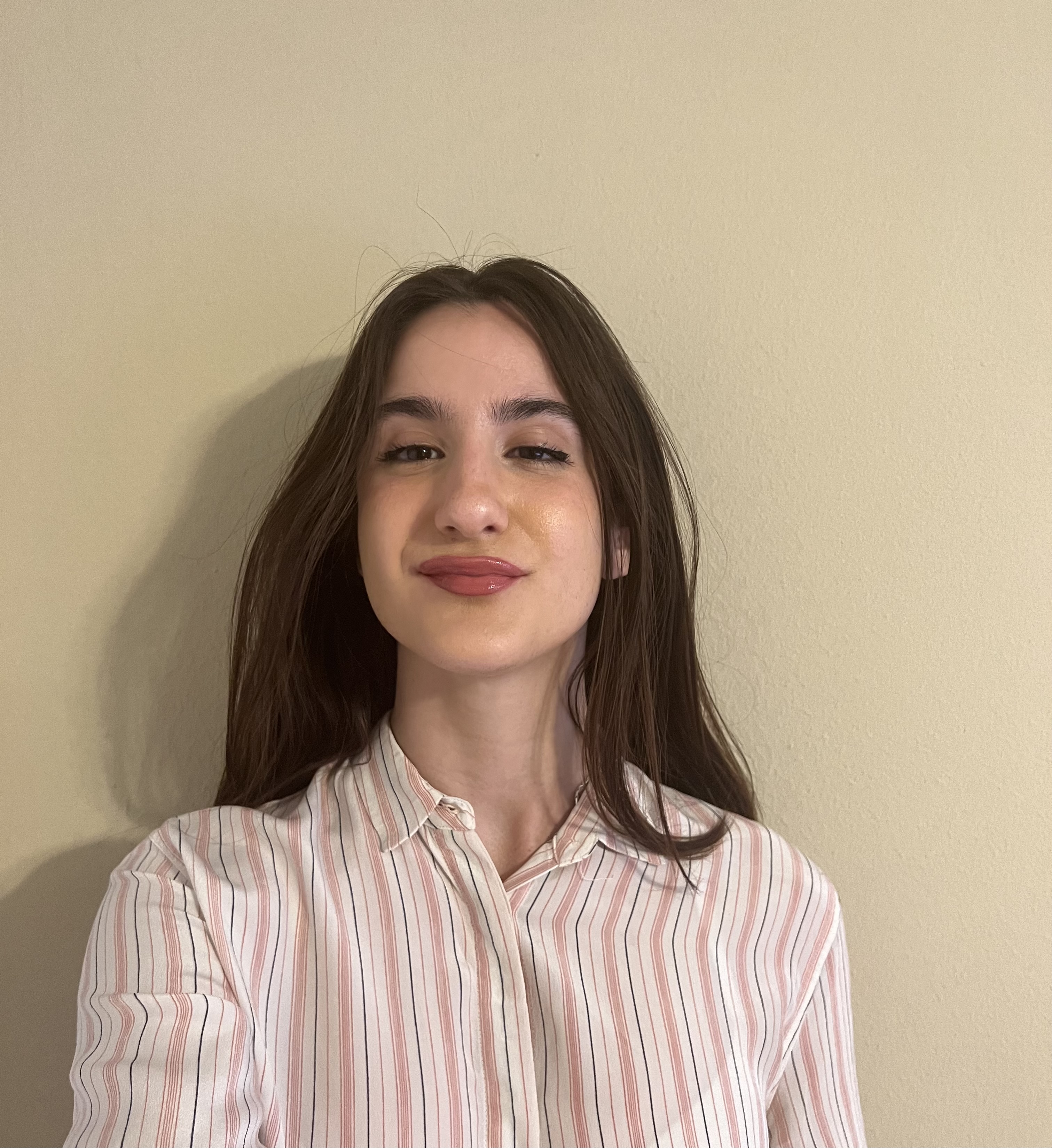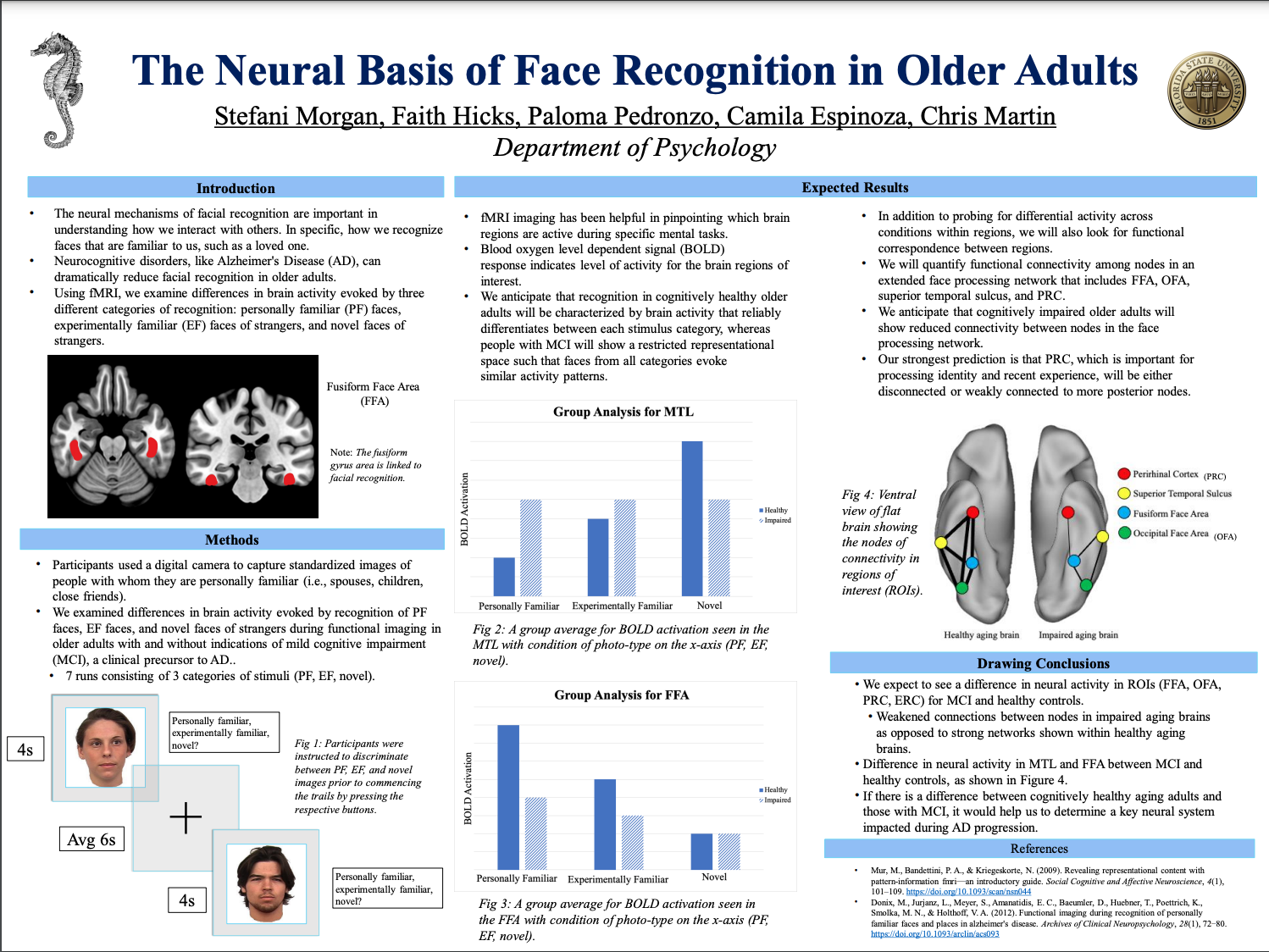Research Symposium
23rd annual Undergraduate Research Symposium, April 6, 2023
Paloma Pedronzo Poster Session 1: 11:00 am - 12:00 pm/ Poster #244

BIO
An aspiring Latina Psychology student from Miami graduating in May 2023. I am actively seeking post-grad employment and internship opportunities. I hope to one day earn a PsyD in Clinical Psychology.
I have worked most recently at Canopy Cove Eating Disorder Treatment Center. I have experience with patient care, mental health treatment, case management, patient intake, performance evaluations, crisis intervention, and individual and group counseling.
Still, I am eager to learn as much as I possibly can to better support those seeking treatment and care in the future.
The Neural Basis of Facial Recognition in Older Adults
Authors: Paloma Pedronzo, Stefani MorganStudent Major: Psychology
Mentor: Stefani Morgan
Mentor's Department: Psychology Mentor's College: Florida State University Co-Presenters: Camila Espinoza, Faith Hicks
Abstract
The ability to recognize a personally familiar face, such as a loved one, is a cognitive function used in everyday life. However, adults diagnosed with Alzheimer’s disease (AD) experience an impairment of this ability, which contributes to the negative impact AD has on quality of life. Here, we use functional magnetic resonance imaging to characterize differences in neural activity related to face recognition in older adults with and without indications of mild cognitive impairment (MCI), a clinical precursor to AD. More specifically, we examine differences in brain activity evoked by recognition of personally familiar faces, experimentally familiar faces of strangers, and novel faces of strangers. Participants used a digital camera to capture standardized images of people with whom they are personally familiar (i.e., spouses, children, close friends). Experimentally familiar faces were learned in a series of lab-based encoding tasks. All participants were asked to discriminate between the three categories of faces (personally familiar, experimentally familiar, and novel) during functional neuroimaging. We will use a pattern-based similarity analysis to quantify representational change among recognition signals for the different faces. We anticipate that recognition in cognitively healthy older adults will be characterized by brain activity that reliably differentiates between each stimulus category, whereas people with MCI will show a restricted representational space such that faces from all categories evoke similar activity patterns. If obtained, this difference between cognitively healthy aging adults and those with MCI would help us to determine a key neural system impacted during AD progression.
Keywords: face recognition

